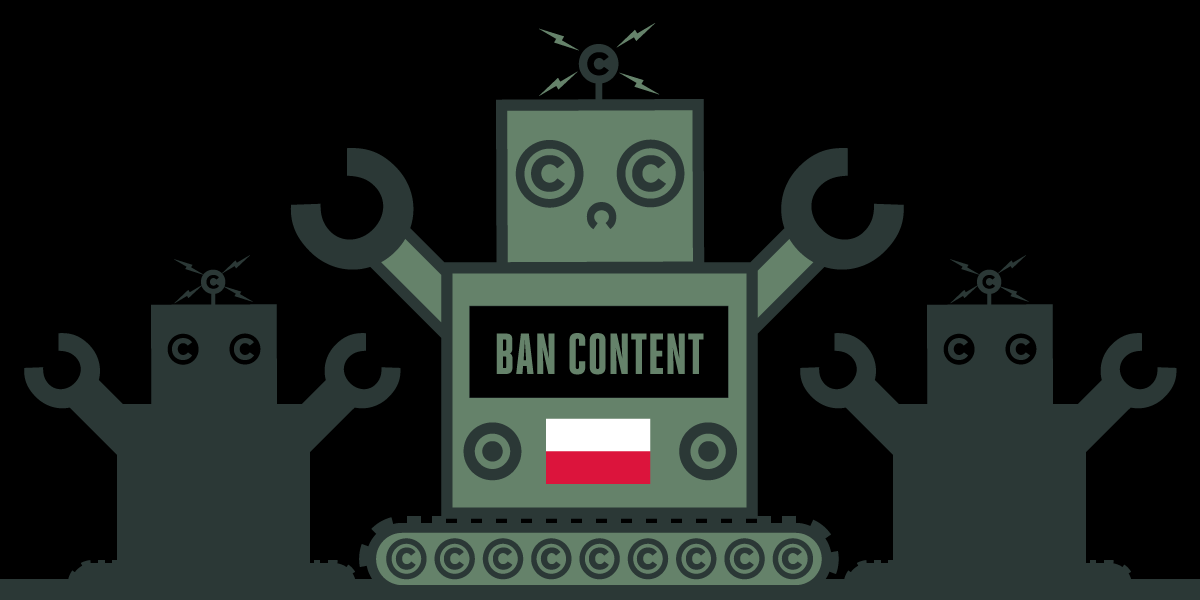Six years ago, Polish netizens thronged the streets to save Europe from ACTA, a US-originated treaty that would have imposed broad censorship and surveillance on the Internet in copyright’s name.
Today, Poles are centre-stage again, fighting against “ACTA2”: the Copyright in the Single Digital Market Directive, and your help has never been more desperately needed.
Tell Poland's Negotiators to Oppose Article 13 and 11
This month, the EU will negotiate the latest (and possibly final) draft of the Directive, and we are dismayed (but not surprised) to learn that none of its deficiencies — rules that would lead to worse censorship and market concentration that even ACTA — had been improved upon. In fact, in some ways, these are now worse.
The EU and its member-states have been negotiating since September, but they have not found any way to improve on the Directive’s two controversial clauses:
- Article 11: A proposal to make platforms pay for linking to news sites by creating a non-waivable right to license any links from for-profit services (where those links include more than a word or two from the story or its headline). Article 11 fails to define “news sites,” “commercial platforms” and “links,” which invites 28 European nations to create 28 mutually exclusive, contradictory licensing regimes. Additionally, the fact that the “linking right” can’t be waived means that open-access, public-interest, nonprofit and Creative Commons news sites can’t opt out of the system.
- Article 13: A proposal to end the appearance of unlicensed copyrighted works on big user-generated content platforms, even for an instant. Initially, this included an explicit mandate to develop “filters” that would examine every social media posting by everyone in the world and check whether it matched entries in an open, crowdsourced database of supposedly copyrighted materials. In its current form, the rule says that filters “should be avoided” but does not explain how billions of social media posts, videos, audio files, and blog posts should be monitored for infringement without automated filtering systems.
(Almost) everybody hates these ideas. Not only have four million Europeans signed a petition opposing the Directive’s passage in the current form; it has also been roundly condemned by Europe’s largest movie companies and sports leagues and the Internet’s most esteemed technical experts, including the Father of the Internet Vint Cerf, and the inventor of the World Wide Web Sir Tim Berners-Lee.
And yet, the best the EU and the national negotiators who produced this draft can offer us is…nothing. This revision still fails to correct the glaring defects in Article 11, the Link Tax, including failing to adequately define any of the key features of the regulation. The new Article 13 is identical in effect to the last one, and has not been improved by adding a laundry-list of impenetrable, contradictory, incoherent clauses insisting that some theoretically perfect technology to filter hundreds of billions of communications and sort them into “infringing” and “not infringing” is can be legislated into existence (it can’t).
This is the time for Poland to act: a rare moment when the country’s left and right agree on something, and that something is that ACTA2 must not be crammed down the throats of Europeans who do not want it.
TELL POLAND'S NEGOTIATORS TO OPPOSE ARTICLE 13 AND 11





